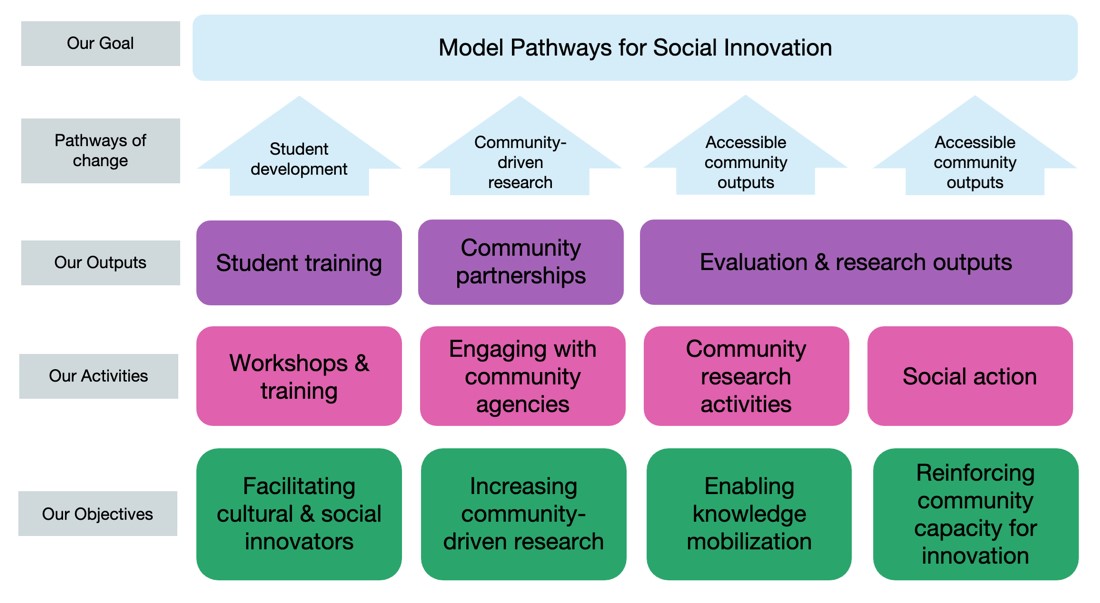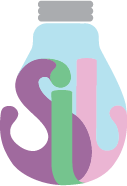The SIL Project Framework
Project Summary
How do we build better lives across the gender and sexuality spectrum through community-led research and collaborations between community partners, researchers, and 2SLGBTQ people?
It is no secret that two Spirit, lesbian, gay, bisexual, transgender, queer, and gender non-conforming people (2SLGBTQ) face pervasive social and health barriers (Kelleher, 2009; Williams et al., 2017), with ongoing homo- and transphobia at all levels of society, whether from landlords, educators, healthcare providers, or the general public (Durso & Meyer, 2013; Keuroghlian et al., 2017). Now, more than ever, we need initiatives that respond to systemic injustices targeting 2SLGBTQ communities.
The Social Innovation Lab on Gender and Sexuality (SIL) reorients the community-university research relationship via community-directed projects.
Taking the format of a community-university “laboratory,” we will bring engaged communities and individuals together to collaborate on projects pertinent to both the lived experiences of 2SLGBTQ people and to the social, cultural, legal, and political environments which both create and constrain them. Experts in gender and sexualities studies, community-based participatory research (CBPR), human rights law, and evaluation will work toward substantive equity shifts in local, provincial, and national policy and practice around gender and sexuality. Through engaging directly in social change and human rights efforts, The Lab supports outcomes such as policy development around trans rights, supporting increased legal protections for 2SLGBTQ people in prisons, and advocating for access to comprehensive healthcare for gender affirming surgeries, among many other projects.
The Lab amplifies the resiliencies of gender and sexually diverse communities, including their tremendous creativity and capacity for innovation. Queer communities are often well ahead of academic theory and practice, improving public accountabilities, inclusion profiles, and institutional and governance capacities, from public health, education and policing to policy development and analysis. 2SLGBTQ organizations are well-connected to civic, provincial, and national governments, increasingly helping to set priorities for building a more just society. Knowledge collaborations involving queer community centres, other NGO partners, and researchers in social and policy initiatives can support innovative, applied outcomes. Due to the expertise of identified community partners and researchers, the SIL project has outlined the followed key focus areas within gender and sexuality:
Moving from research and study, to mobilization and application, we will work toward concrete shifts in policy and legal landscapes.
Through partnerships and existing relationships we centre Two Spirit and Indigenous experiences, working to ensure that our activities are equitable and intersectional.
Through bringing hands-on and lived-experience together with expert research and evidence-informed recommendations, we work toward high quality, accessible healthcare for trans and gender diverse people.
Project Logic Model

